Share
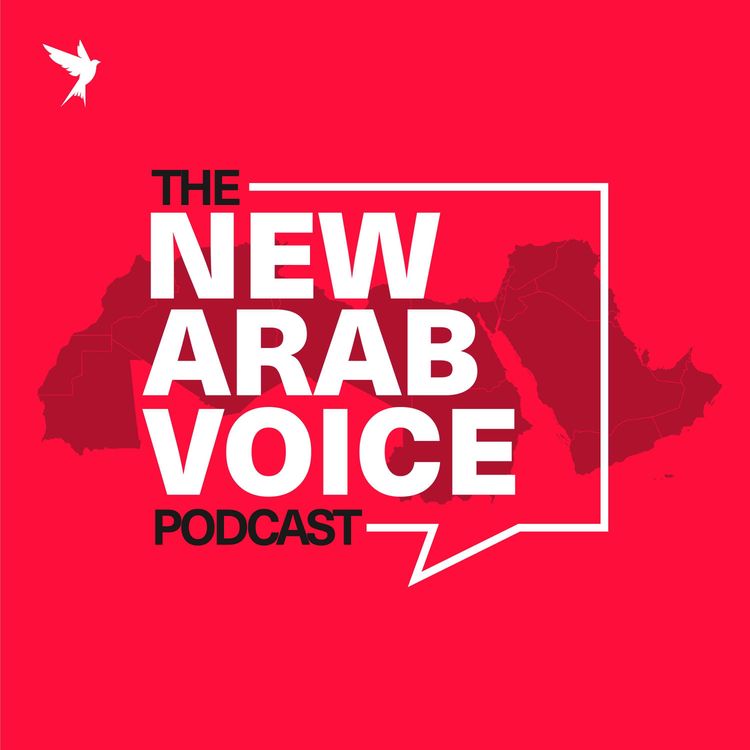
The New Arab Voice
Al-Qaeda’s Next Top Terrorist: The jihadist movement after Zawahiri
A recent US drone strike, in the heart of the Afghan capital of Kabul, killed the head of Al-Qaeda.
Ayman al-Zawahiri had led the group since 2011, following the death of Osama bin Laden, and during that time the jihadist terror organisation underwent a number of significant changes. Some changes were by choice, others were forced upon them.
This week on The New Arab Voice, we examine what the killing of Ayman al-Zawahiri means for Al-Qaeda, and how significant is it that he killed in Kabul. We explore the ties between Al-Qaeda and the Taliban, and why they remain connected, and how Western counterterrorism efforts could deal with this relationship.
We also give you the lowdown on who might step up to the big seat and lead Al-Qaeda into the future.
On this episode, we speak with Javid Ahmed (@ahmadjavid), senior fellow with the Atlantic Council’s (@AtlanticCouncil) South Asia Center, and Charles Lister (@Charles_Lister), senior fellow at the Middle East Institute (@MiddleEastInst) and director of Syria (@MEI_Syria) and Counterterrorism (@MEI_CTE) programmes.
This podcast is written and produced by Hugo Goodridge. Theme music by Omar al-Fil.
Other music by Blue Dot Sessions.
To get in touch with the producers, follow then tweet us at @TheNewArabVoice or email hugo.goodridge@alaraby.co.uk.
More episodes
View all episodes
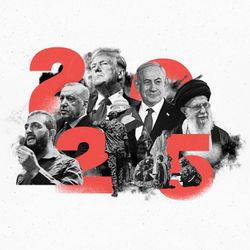
14. 2025 in Review
01:22:14||Season 12, Ep. 14The year is drawing to a close, which means its time for The New Arab Voice's annual review of year. To guide us through the tangled mess of the past 12 months, we're joined by The New Arab's Managing Editor Karim Traboulsi (@Kareemios), and journalist Oliver Mizzi (@OllyMizzi99).In this episode, we look back on the 12 days of war that shook Iran and Israel, the continued efforts of President Erdogan to hold on to power, the state building project of the new Sharaa government in Damascus, the brutal war in Sudan, and the stuttering ceasefire efforts in Gaza. We also look ahead to what 2026 might bring, and what us at The New Arab will be keeping an eye on. This podcast is written and produced by Hugo Goodridge (@hugogoodridge).Theme music by Omar al-Fil with additional music from Audio Network.To get in touch with the producers, follow then tweet us at @TNAPodcasts or email podcast@newarab.com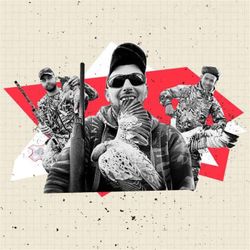
13. The Poachers Trail: Part 2
39:01||Season 12, Ep. 13This is part 2 of a special investigation. You can find part 1 in your feeds now.For 15 months, The New Arab, in cooperation with Bridges Investigations, explored the shadowy world of Maltese bird hunters.We uncovered how Maltese hunters, frustrated by local laws, were travelling to Egypt to slaughter migratory birds in vast numbers. Their hunting activities have been described as an environmental disaster, and a threat to the thousands of migratory birds who rely on Egyptian wetlands.We went undercover in Fayoum. Followed the smuggling routes from Egypt’s lakes to Maltese homes. And saw how Europe’s conservation efforts collapse when its citizens pull the trigger abroad.This is more than a story of poaching. It’s about wasted conservation money, destroyed ecosystems, and a system that rewards hunters while silencing conservationists. The Poachers Trail was a investigation by The New Arab and Bridges Investigations (@BRIDGES4I), with the support of the Journalism Fund Europe (@journalismfund). It was written and hosted by Mahmoud Elsobky (@ElsobkyMahmoud_), with additional help from Wael El-Sayegh.Andrea Glioti is The New Arab’s Investigation editor. This podcast was produced by Hugo Goodridge. To get in touch with the producers, follow then tweet us at @TNAPodcasts or email podcast@newarab.com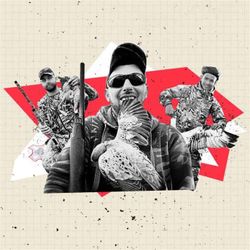
12. The Poachers Trail: Part 1
29:32||Season 12, Ep. 12For 15 months, The New Arab, in cooperation with Bridges Investigations, explored the shadowy world of Maltese bird hunters.We uncovered how Maltese hunters, frustrated by local laws, were travelling to Egypt to slaughter migratory birds in vast numbers. Their hunting activities have been described as an environmental disaster, and a threat to the thousands of migratory birds who rely on Egyptian wetlands.We went undercover in Fayoum. Followed the smuggling routes from Egypt’s lakes to Maltese homes. And saw how Europe’s conservation efforts collapse when its citizens pull the trigger abroad.This is more than a story of poaching. It’s about wasted conservation money, destroyed ecosystems, and a system that rewards hunters while silencing conservationists. The Poachers Trail was a investigation by The New Arab and Bridges Investigations (@BRIDGES4I), with the support of the Journalism Fund Europe (@journalismfund). It was written and hosted by Mahmoud Elsobky (@ElsobkyMahmoud_), with additional help from Wael El-Sayegh.Andrea Glioti is The New Arab’s Investigation editor. This podcast was produced by Hugo Goodridge. To get in touch with the producers, follow then tweet us at @TNAPodcasts or email podcast@newarab.com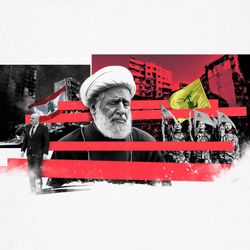
11. Hezbollah's Existential Crisis: Lebanon's effort to disarm the resistance and the future of the Party of God
29:46||Season 12, Ep. 11It has been annus horribilis for Hezbollah.They were struck by a deadly pager attack, Israel launched a devastating air and ground campaign against the group, and their long-time leader was killed in an Israeli airstrike. The war left Hezbollah battered and broken, and now, the Lebanese government is moving in to clear up the arms, which is taking place under the shadow of continued Israeli airstrikes.At the start of September, the Lebanese army presented its plan to disarm Hezbollah once and for all to the cabinet. While welcomed by much of the cabinet, Hezbollah rejected the notion.This week on The New Arab Voice we examine the state of Hezbollah today. How are the Lebanese state disarming the group? And what is the future of the self-styled resistance movement in Lebanon?We're joined by David Wood, Senior Analyst for Lebanon at International Crisis Group (@CrisisGroup); and Paul Salem, senior fellow at the Middle East Institute (@MiddleEastInst).This podcast is written and produced by Hugo Goodridge (@hugogoodridge).Theme music by Omar al-Fil with additional music from Audio Network.To get in touch with the producers, follow then tweet us at @TNAPodcasts or email podcast@newarab.com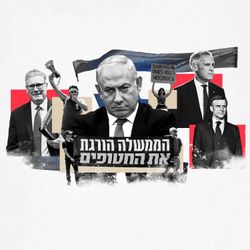
10. Recognising Problems in Israel: Western recognition of Palestine and trouble at the Foreign Ministry
34:35||Season 12, Ep. 10This week on The New Arab Voice podcast, we look at the recent decision by Western nations to recognise the State of Palestine. It came as a surprise to many, although it remains to be seen what it actual means for Palestinians. Either way, it angered Israel. And as Western states were announcing to recognise a Palestinian state, Israel was planning a major new offensive in Gaza, and Israeli citizens were on the streets protesting against the Netanyahu government. This week, what’s Israel doing in Gaza, and why are some Israeli citizens protesting the move? What does the recognition of a state of Palestine mean for Israel? And is Israeli foreign diplomacy failing?We speak with Paul Scham, the former Professor of Israeli Studies at the University of Maryland; also, Nimrod Goren, President and Founder of Mitvim – The Israeli Institute for Regional Foreign Policies.This podcast is written and produced by Hugo Goodridge (@hugogoodridge).Theme music by Omar al-Fil with additional music from Audio Network.To get in touch with the producers, follow then tweet us at @TNAPodcasts or email podcast@newarab.com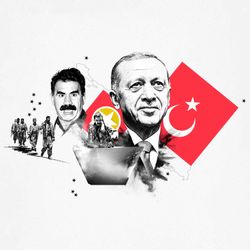
9. Erdogan Considers the Kurdish Question: The PKK ceasefire and the Kurdish future in Turkey
36:53||Season 12, Ep. 9This week on The New Arab Voice, we look at the recent ceasefire agreement between the PKK and the Turkish state. The Kurdistan’s Worker’s Party (PKK) and the Turkish state have been in a state of conflict since 1984. The conflict has killed over 35,000 people and achieved little, for either side. But now, a ceasefire has been announced. In a symbolic ceremony, PKK fighters burnt their arms in Sulaimaniyah, Iraq; and more recently, a commission was started at the Turkish Parliament to discuss the Turkish parliament. Is this the opportunity for Kurds to secure their rights in Turkey? Why is the Turkish state agreeing to a ceasefire now? Is President Erdogan using the ceasefire talks to increase his grip on power?Joining us to examine the Kurdish position, we speak with Dr. Salim Çevik (@salimcevikk), a visiting fellow at the Centre for Applied Turkey Studies (@CATS_Network) at the German Institute for International and Security Affairs (@SWPBerlin).And to guide us through Turkish thinking, we speak with Henri Barkey (@hbarkey), adjunct senior fellow for Middle East studies at the Council on Foreign Relations (@CFR_org) and the Bernard L. and Bertha F. Cohen chair in international relations at Lehigh University (Emeritus) (@LehighU). This podcast is written and produced by Hugo Goodridge (@hugogoodridge).Theme music by Omar al-Fil with additional music from Audio Network.To get in touch with the producers, follow then tweet us at @TNAPodcasts or email podcast@newarab.com
8. Sudan's Raging and Overlooked Tragedy: The warring generals, the illegal gold, and a population trapped
34:16||Season 12, Ep. 8This week on The New Arab Voice podcast we look at the state of the war in Sudan.It’s been declared the worst humanitarian crisis in the world, with hunger, disease and displacement rife. Yet the fighting surges on with reports of atrocities in the Kordofan region that left hundreds of civilians dead last weekend, the UN reported.The two rival militaries, the Sudanese army and the Rapid Support Forces, are showing no sign of slowing down - and they have a few external forces to thank.So why is the UAE accused of involvement in the war? Who else is fighting for a piece of Sudan’s mineral rich pie? And might the crisis be next on the list for the “peacemaking” Trump administration in Washington?To discuss all this and more, we speak to Hamid Khafallah (@HamidMurtada) Sudanese Researcher and Policy Analyst at the University of Manchester (@OfficialUoM), Hala Alkarib (@Halayalkarib) Sudanese activist and Regional Director of Strategic Initiative for Women in the Horn of Africa, and Khalid Omer Yousif (@KHOYousif) Vice Chairman of Sudanese Congress Party and former minister of cabinet affairs in the transitional government.
7. Going Nuclear : 12 days of fire between Iran and Israel
34:20||Season 12, Ep. 7This week, we look at the recent Israeli surprise attack, and the Iranian response that rained down on Israeli cities. The war started on 13 June with surprise attack launched by Israel, attacking high profile military and nuclear figures, as well as nuclear and military sites across the country. Iran responded with a wave of drones and missiles, some of which got through. We've seen outbreaks of violence between the two countries before, but this round was far more costly for each nation. Why did Israel decide to launch a surprise attack? How were Iran able to inflict damage to Israel? Who was targeted by Israel and what impact do the killings have? What's the state of the Iranian nuclear deal? And can a new deal be reached?Joining us to untangle the Israeli decision making is Mairav Zonszein (@MairavZ), Senior Israel analyst for the International Crisis Group (@CrisisGroup). And to understand the Iranian position, we speak with Alex Vatanka (@AlexVatanka), Senior Fellow at the Middle East Institute (@MiddleEastInst), with a particular focus on Iran. This podcast is written and produced by Hugo Goodridge (@hugogoodridge).Theme music by Omar al-Fil with additional music from Audio Network.To get in touch with the producers, follow then tweet us at @TNAPodcasts or email podcast@newarab.com
6. Trump's Gulfing Trip: US dealing making in the Gulf sidelines Israel's Netanyahu
34:51||Season 12, Ep. 6This week on The New Arab Voice podcast we look at US President Donald Trump's recent trip to the Gulf. During this trip he secured billions of dollars worth of deals and investments. There were the usual defence contracts, but also, advance technologies also played a huge role in the deals. As well as business deals, Trump also sought to make political progress on a number of issues facing the region. Trump continued to push his desire for a new Iran nuclear deal, and he also announced the lifting of all sanctions on Syria. Another notable point from his trip, is what Trump didn't do; namely, he didn't visit Israel. Why did Trump choose the Gulf for his first foreign trip? What deals did he make? What political gains was he able to make? Why didn't he visit Benjamin Netanyahu? What's the state of the relationship between Netanyahu and Trump? Are the two leaders diverging and is there anything Netanyahu can do about it?Joining us this week, we speak with Paul Salem (@paul_salem), a senior fellow at the Middle East Institute (@MiddleEastInst), and Charles W. Dunne (@CharlesWDunne), a Nonresident Senior Fellow at Arab Center Washington DC (@ArabCenterWDC).All five episodes of our special series Sanaa's Odyssey are out now, you can listen to them via The New Arab, or search for 'Sanaa's Odyssey', wherever you get your podcasts.This podcast is written and produced by Hugo Goodridge (@hugogoodridge).Theme music by Omar al-Fil with additional music from Audio Network.To get in touch with the producers, follow then tweet us at @TNAPodcasts or email podcast@newarab.com